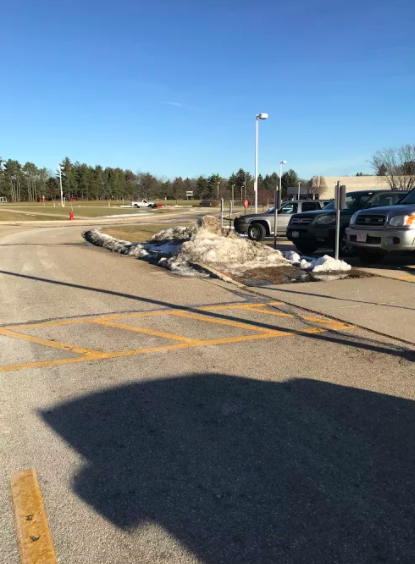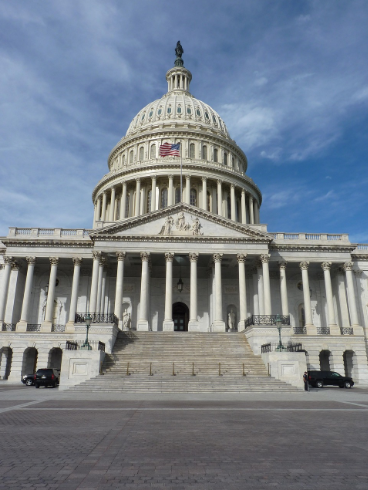What Does Climate Change Mean for our Future?

The ice in the AHS parking lot melting
On December 17, 2017, National Geographic posted an image of a melting snowcap onto Twitter, as well as a video of a starving polar bear. This image and video inspired Arrowhead students to move to Twitter to share their thoughts on a highly disputed issue: climate change.
Wikipedia defines climate change as, “a change in the statistical distribution of weather patterns when that change lasts for an extended period of time.”
NASA, the National Aeronautics and Space Administration, explains that climate change is an effect of humans. In the article “A blanket around the Earth,” it is stated that, “Most climate scientists agree the main cause of the current global warming trend is human expansion of the ‘greenhouse effect’ — warming that results when the atmosphere traps heat radiating from Earth toward space.”
NASA reported that November of 2017 was the third warmest November on record. Their global climate change page, https://climate.nasa.gov/faq/ reports that sea level is increasing by an average of 3.4 millimeters per year, land ice is decreasing by 286.0 gigatonnes (a unit of explosive force equal to one billion (109) tons of trinitrotoluene (TNT)), the global temperature has increased by 1.7 degrees since 1880, and sixteen of the seventeen warmest summers have been reported since 2001.
On the 18th of December, President Trump released information stating that the government is no longer regarding climate change as a national security threat.
“Ever since the last Ice Age, the earth has been consistently getting warmer, which is something that we don’t fully understand or can control,” says AHS environmental biology teacher and earth club leader Jim Albers. “However the warming trends during this inter-glacial period has been increasing many times faster than any of other.”
“I don’t see climate change as a major issue,” says AHS junior Morgan Konopka. “I never really learned about it and I’m not positive about what it is exactly but from what I know, I think that there are bigger issues in the world than the temperature increasing by the slightest amount and some ice in the Arctic melting.”
NASA reports that, by the end of the century, hurricanes will become stronger and more intense, the sea level will rise 1-4 feet by 2100. In the midwest, climate change is likely to cause: extreme heat, heavy downpours and flooding. Climate change will also exacerbate a range of risks to the Great Lakes.
“Climate change is inevitable,” says AHS junior Jackson Ashby. “There is nothing we can do to stop it or even slow it down because it’s going to affect the planet in one way or another.”








